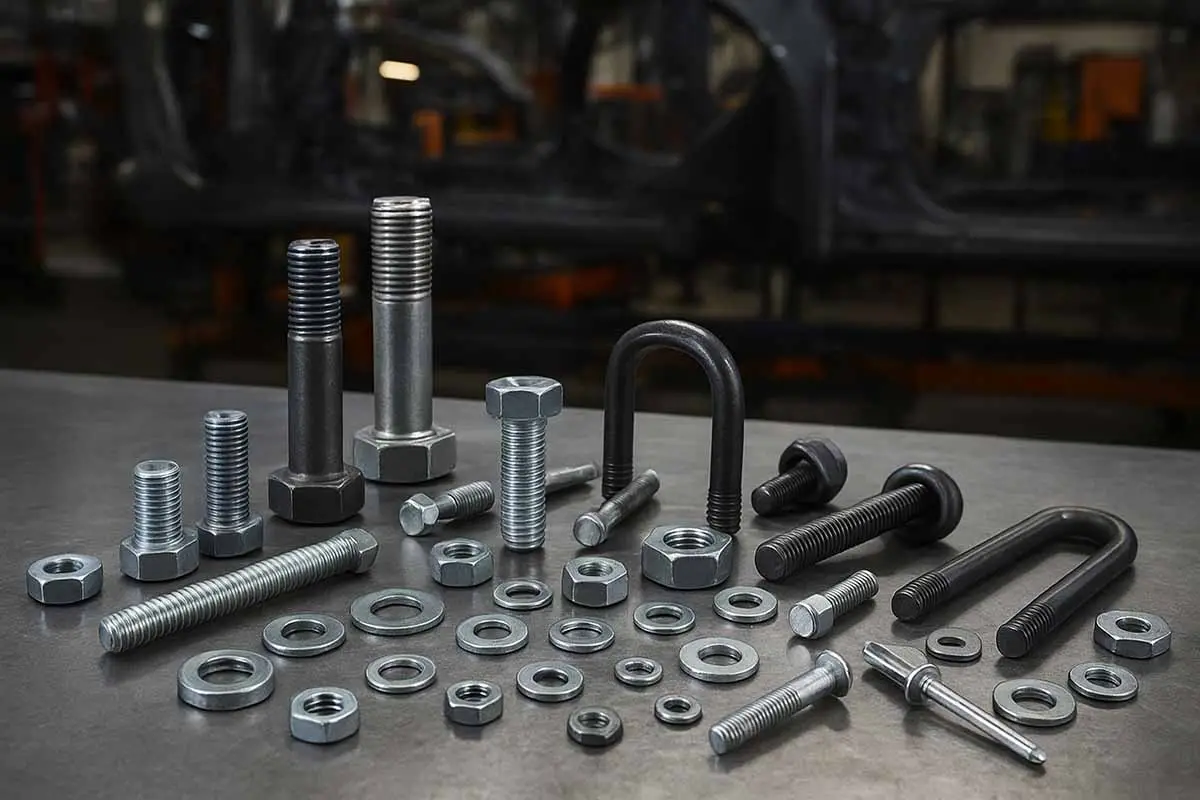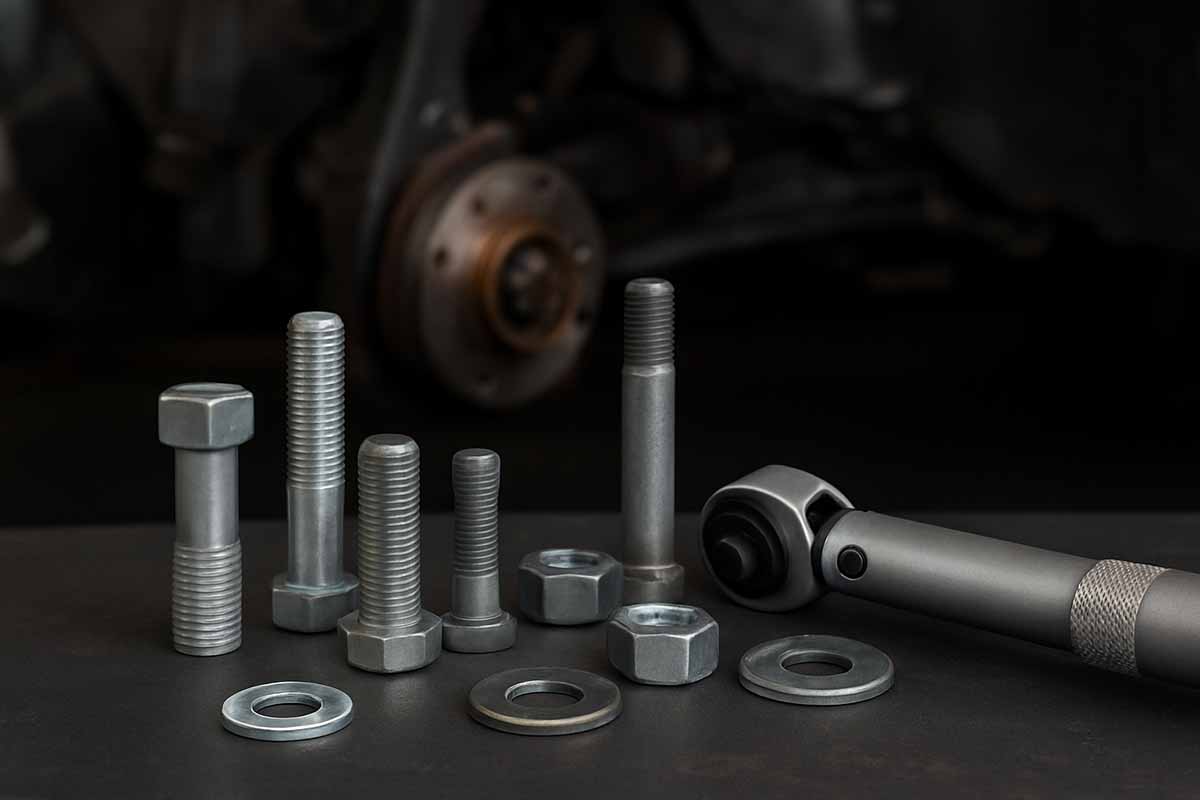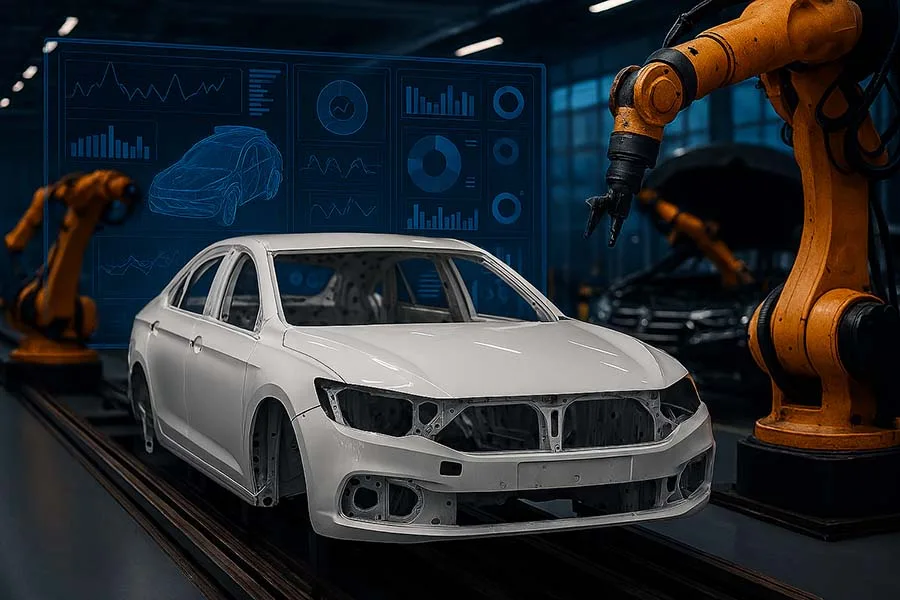In automotive manufacturing, fasteners are the unsung heroes. They might not get the spotlight like engines, transmissions, or infotainment systems, but without them, your car would be a wobbly, unsafe pile of expensive parts. Whether you’re assembling a family hatchback or a performance beast, the quality of your fasteners can determine not only how the car performs but also how safe it is on the road.
In this guide, we’ll cover what types of fasteners dominate the automotive industry, the technical features that matter most, common manufacturing challenges, and how to identify the best (and worst) options on the market.
Why Fasteners Matter in Automotive Manufacturing
A typical car contains 3,000 to 5,000 fasteners. These bolts, nuts, rivets, and clips are responsible for holding everything together – from the chassis and engine components to the seats and trim. In high-performance or safety-critical areas like brake systems or suspension, a single faulty fastener could spell disaster.
Automakers must consider:
- Strength-to-weight ratio – Lighter vehicles mean better fuel efficiency.
- Corrosion resistance – Road salt, water, and temperature swings can ruin subpar fasteners.
- Ease of assembly – In a high-speed production line, every second counts.
- Safety compliance – Fasteners must meet strict standards like ISO, SAE, and OEM-specific tests.
Types of Fasteners Used in Automotive Manufacturing
| Fastener Type | Common Applications | Key Benefits | Possible Drawbacks |
|---|---|---|---|
| Hex Bolts | Engine assembly, suspension | High strength, precise torque control | Can corrode if poorly coated |
| Self-Tapping Screws | Interior panels, plastic parts | No pre-drilling needed | Weaker in high-load situations |
| Blind Rivets | Body panels, structural joining | Quick to install, lightweight | Not reusable |
| U-Bolts | Exhaust systems, suspension | Strong clamping force | Requires careful torqueing |
| Clips & Retainers | Trim, wiring harness | Fast assembly, low cost | Poor quality ones can break easily |
Key Features & Technical Specifications
When selecting automotive fasteners, manufacturers (and even repair shops) must consider:
- Material – High-tensile steel, stainless steel, titanium, or aluminum depending on application.
- Coating/Finish – Zinc plating, galvanization, or phosphate coating to prevent corrosion.
- Tensile Strength – Often measured in MPa (megapascals); higher for structural parts.
- Torque Specifications – Precise torque ensures secure fastening without damage.
- Thread Type – Coarse for quick assembly, fine for high precision and load capacity.
- Temperature Resistance – Especially important for engine bay and exhaust components.
The Good, the Bad, and the Questionable
While many top-tier fastener brands deliver excellent products, cheap imports and counterfeits have become a serious issue in automotive supply chains.
- The Good: Brands that test to ISO 898-1 standards, provide consistent metallurgy, and ensure uniform coatings.
- The Bad: Inconsistent threading, poor heat treatment, coatings that flake after a few months.
- The Questionable: Fasteners that meet specs on paper but fail under vibration testing—often the result of poor quality control.
Interesting & Lesser-Known Facts
Interesting Fact: The first car to use titanium fasteners in large quantities was the McLaren F1, saving over 50 kg in weight.
Lesser-Known Fact: Some modern EV manufacturers are experimenting with adhesive bonding combined with fasteners to reduce vibration and noise, especially in battery enclosures.
Fasteners in Automotive Manufacturing FAQ
Learn More About Industrial Tools In Automotive Industry
- Industrial Tools in the Automotive Industry
- Digital Twins in Automotive Tooling: Smarter Maintenance, Fewer Breakdowns
- Comparing Pneumatic vs. Electric Tools in Automotive Workshops
- How Industry 4.0 Is Reshaping Automotive Assembly Lines
- Trends in Automotive Manufacturing Automation
- Impact of Industry 4.0 and IoT on Automotive Tooling
- Essential EV Toolkits for Modern Automotive Work
- Reviews of 5 Leading Automotive Tool Brands
- Top Tools for Automotive Repair and Diagnostics
- Specialized Equipment for Engine Rebuilding
- Automotive Fasteners and Torque Specs Explained
- Safety Tools and PPE in Automotive Workshops
- Troubleshooting Common Automotive Tool Problems
- Top Automotive Tool Brands Reviewed
- Fasteners in Automotive Manufacturing: What Makes the Cut?
- How to Use a Torque Wrench in the Automotive Industry
- Automotive Torque Wrench Buying Guide 2025
- Best Smart Tightening Tools for Industrial Assembly (2026 Guide)
Conclusion & Reader Engagement
Fasteners in automotive manufacturing may be small, but their impact is massive. From safety-critical brake bolts to tiny clips holding your dashboard together, each plays a vital role in vehicle integrity and performance. Choosing the right fastener is not about grabbing the cheapest option – it’s about precision, durability, and safety.
Now it’s your turn! Have you ever worked with automotive fasteners, or experienced a failure caused by a bad one? Share your story in the comments below, and let’s start a conversation. And if you found this article useful, please share it on your social media – someone in your network might need it today!





